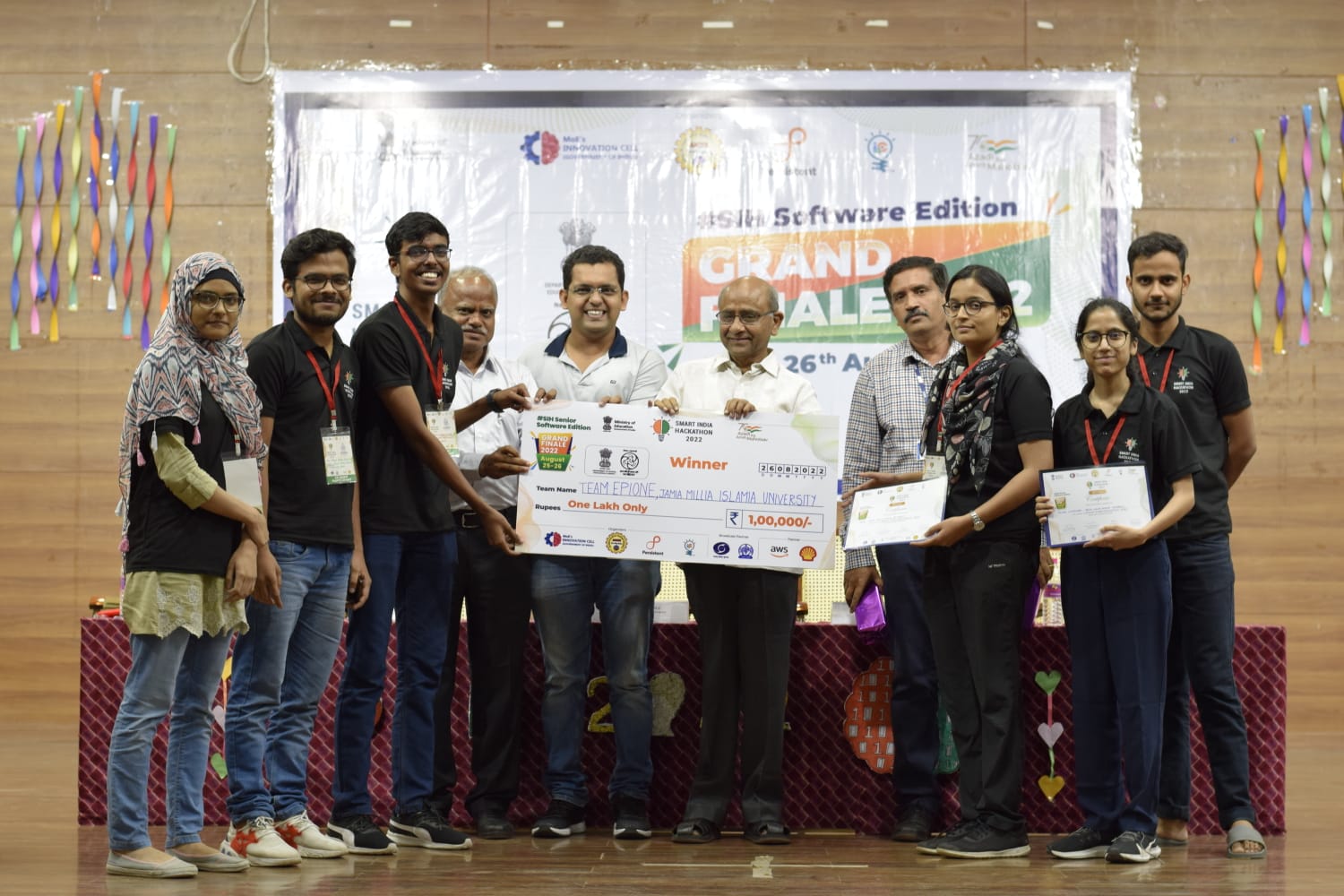
Team ‘Epione’ comprising six students from the Department of Computer Engineering, Jamia Millia Islamia (JMI) bagged the first prize in this year’s Smart India Hackathon (SIH) along with a cash prize of rupees 1 lakh.
SIH is a nationwide initiative of the Ministry of Education (MoE) to provide students with a platform to solve some of the pressing problems of the society, and thus inculcate a culture of product innovation and a mindset of problem-solving. This year, the 36-hour long hackathon was held on 25th- 26th August at 75 Nodal Centres across the country offering students 476 problem statements received from 62 organizations providing them an opportunity to come up with out-of-the-box ideas.
Team Epione participated in SIH for the problem statement KH1150. Six members in the team, all from B.Tech. 5th semester are; Arefa (Team leader), Aaliyah Beg, Faizan Choudhary, Lal Bihari Pandey, Fatima Shafique and Abbas Haider. The aim of their problem statement was to promote self- care among students and to enhance their overall well-being including mental, physical and social health. As a solution to the problem statement, team Epione developed a cross- platform mobile application ‘Epione’ using Flutter as the framework and Dart as the programming language. After three rounds of vigorous evaluation by the experts during the Grand Finale held at Kongu Engineering College, Erode, Tamil Nadu, the team was declared the winner for the problem statement KH1150.
Understanding that self-care is a multifaceted, multidimensional engagement, team Epione wanted to have a holistic approach towards solving the issues relating to it and wanted to develop a single platform at students’ fingertips which they can use for their entire self-care journey. Hence, they decided to include 4 tracks, namely, Mental Health, Physical Health, Social Health and Work Health and within these they have specific features which the students can use daily. Along with these 4 tracks they also have 4 other features.
First one being that of doctor consultation. Students will be able to contact mental health experts through the app as accessibility to such experts is a major hindrance. Second one is an AI chatbot which can be used for assisting the users of the app. Third is a ‘Stories’ section where students can share their experiences and the fourth is an SOS feature which sends an emergency message along with the location of the sender. Within the four tracks, Epione consists of numerous features such as Meditation, Mindfulness, PHQ-9 test, Cognitive Behavioral Therapy, Yoga pose detection, Time Management techniques etc. all of which together work towards enhancing the overall well-being of the users.
